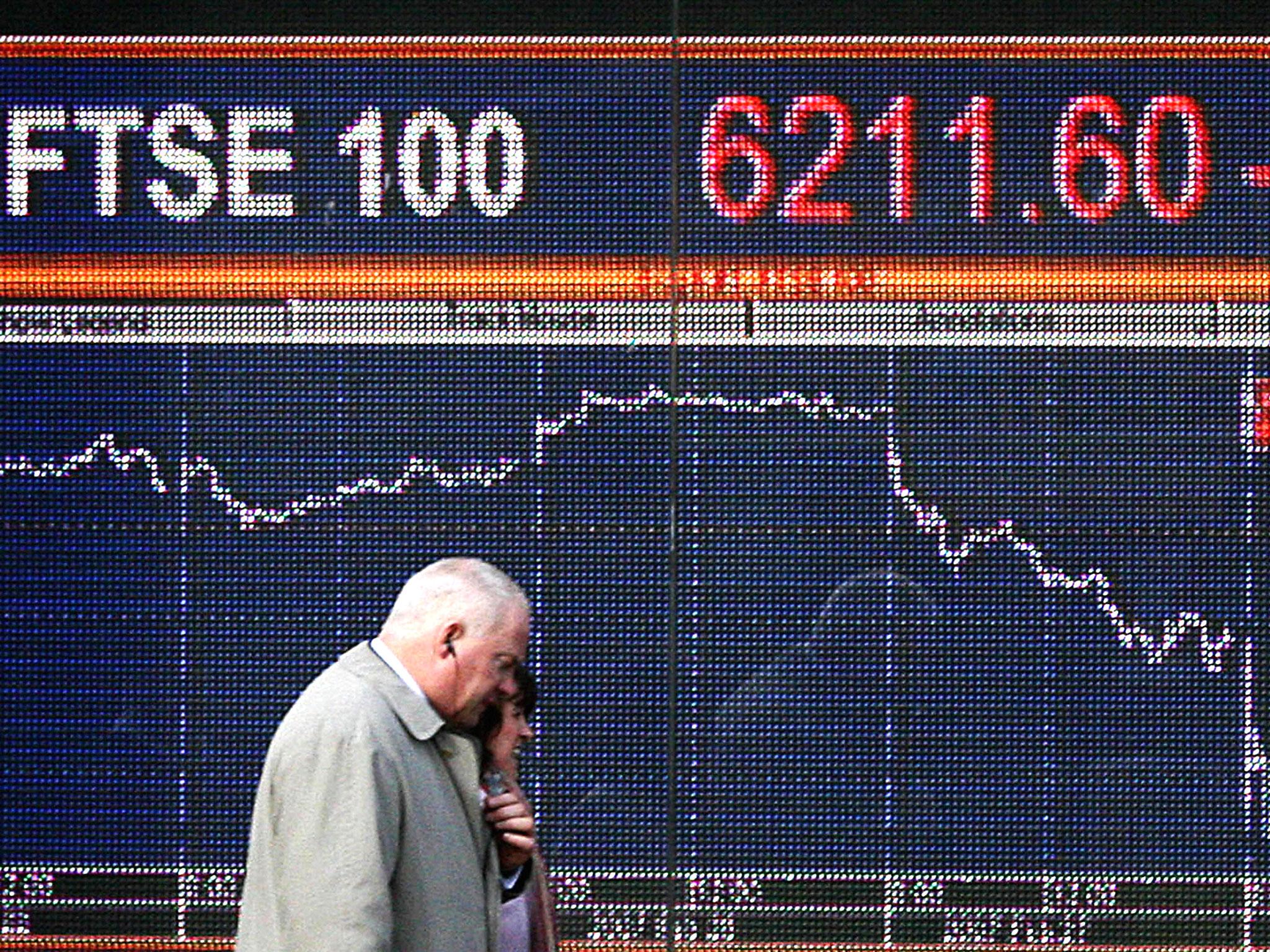Falling stock markets: Five things you need to know about the FTSE 100
Since the start of the year, the Footsie has fallen 8 per cent, while the Dow Jones is down 8.5 per cent

How far have they fallen this week?
The FTSE 100, slipped to its lowest level since 2012 on Thursday, when shares had one of their most volatile days since the global financial crisis. Markets across the world fell, including the US Dow Jones Industrial Average, the CAC 40 in France and Germany’s Dax. Since the start of the year, the Footsie has fallen 8 per cent, while the Dow Jones is down 8.5 per cent.
What’s the problem?
It depends who you speak to. Connor Campbell, financial analyst at Spreadex, said markets are “caught in an ugly downward spiral led by the panic-ridden and increasingly bloodless banking sector”. Meanwhile, US Federal Reserve chairwoman Janet Yellen said the economic slowdown in China and the continued collapse of oil prices and other commodities threatened global growth prospects.
Is everything falling?
Oddly enough, while almost everything else appeared to be collapsing this week, on Thursday gold was transported to its biggest one-day rise since 2011 as there was a panic-led flight to safety.
Should I flee to safety?
If you’re invested directly in the stock market then presumably you are prepared for price volatility. So hopefully you’re aware of the importance of ignoring short-term movements and concentrating on the long term.
But what if stock markets continue to fall?
That seems a strong possibility at the moment. On the other hand there will be little surprise if they start to recover soon. That should tell you that it’s impossible to predict what will happen with any certainty.
It’s always good to reassess investments, but you shouldn’t just look at how shares or funds have performed in the past few days or weeks – but how they are likely to perform in the future. If you think your holdings are likely to continue dropping, then it may be time to sell. If you expect growth in the long term, it may be worth holding on.
Join our commenting forum
Join thought-provoking conversations, follow other Independent readers and see their replies
Comments
Bookmark popover
Removed from bookmarks